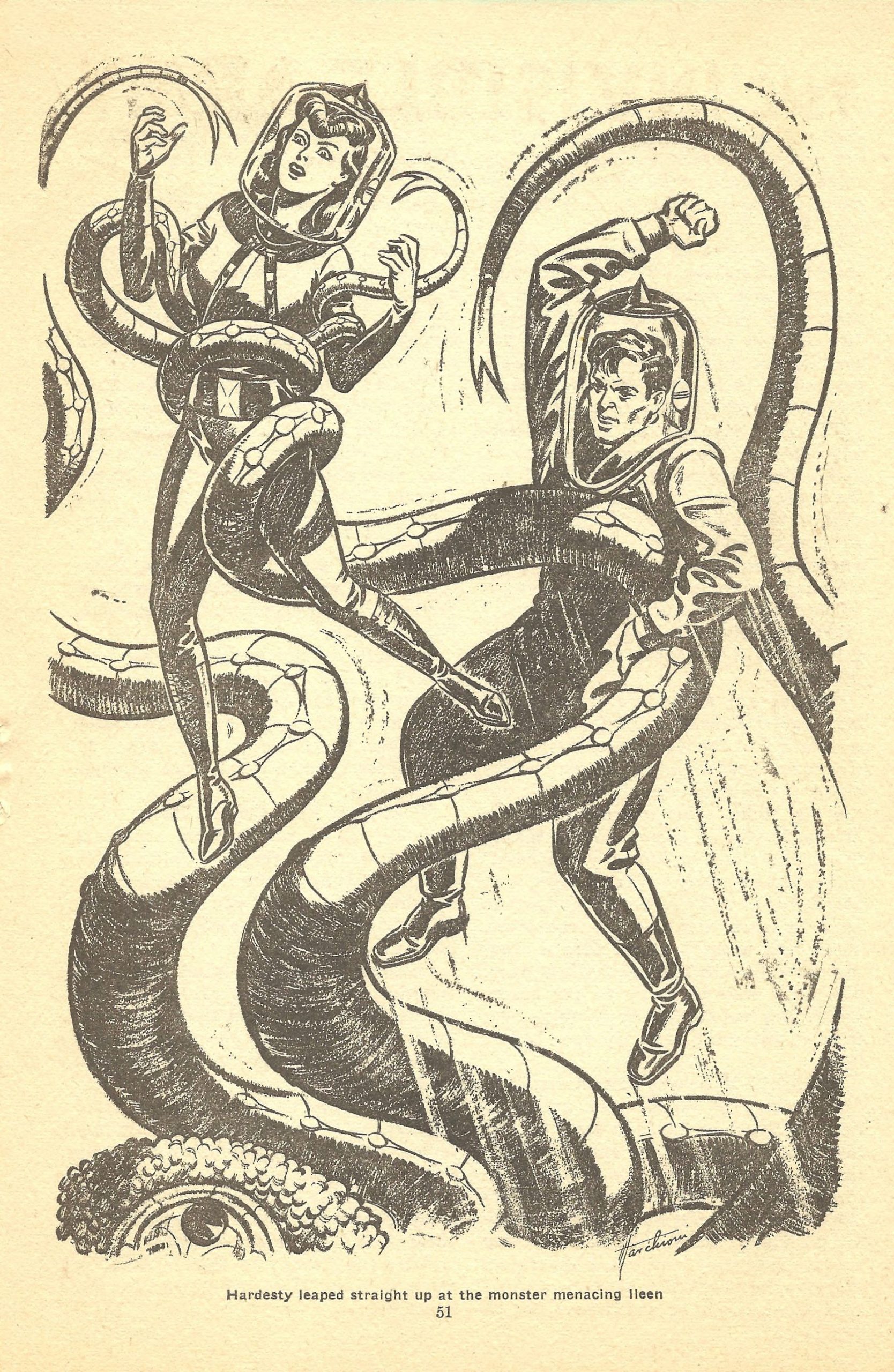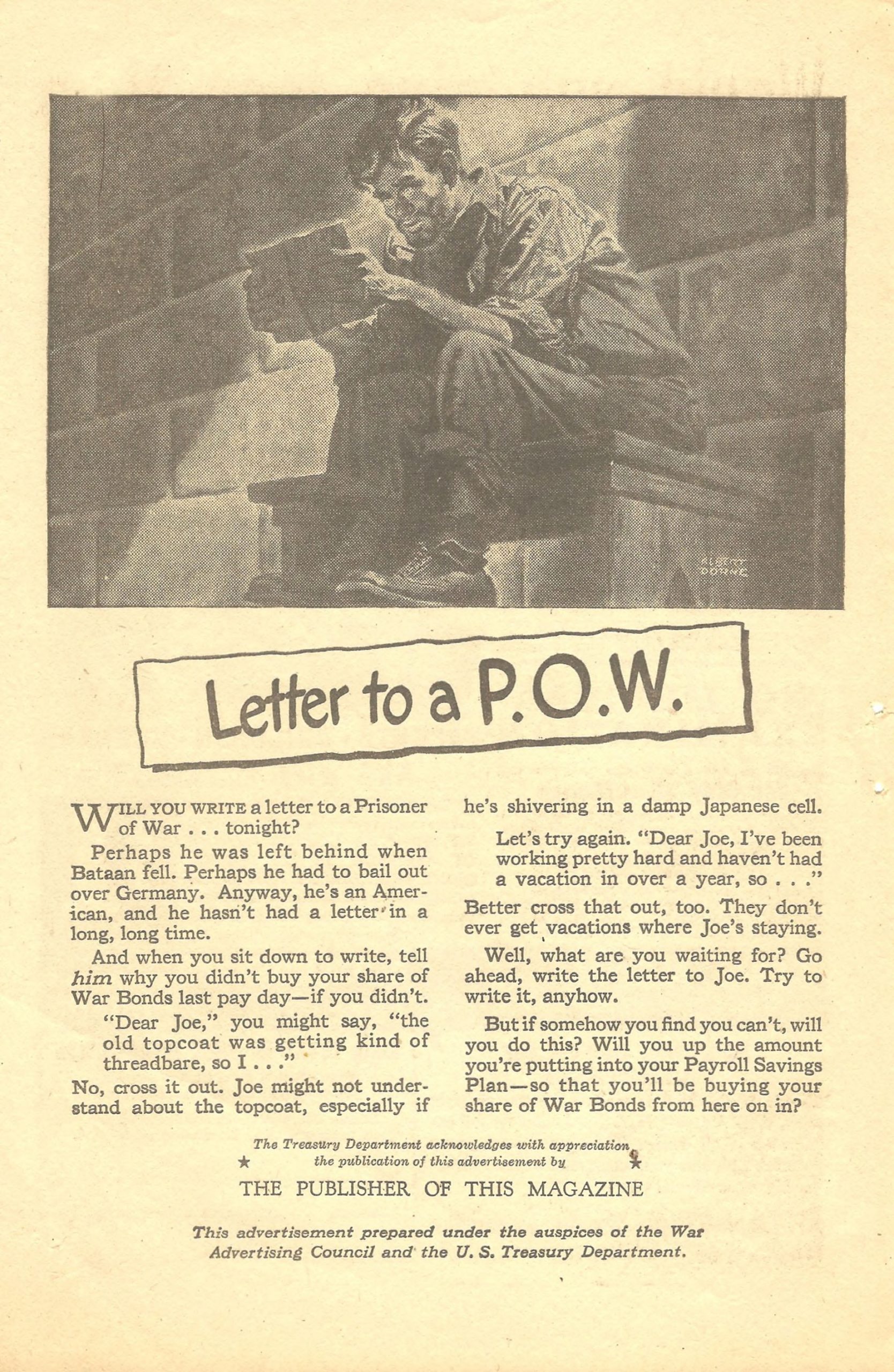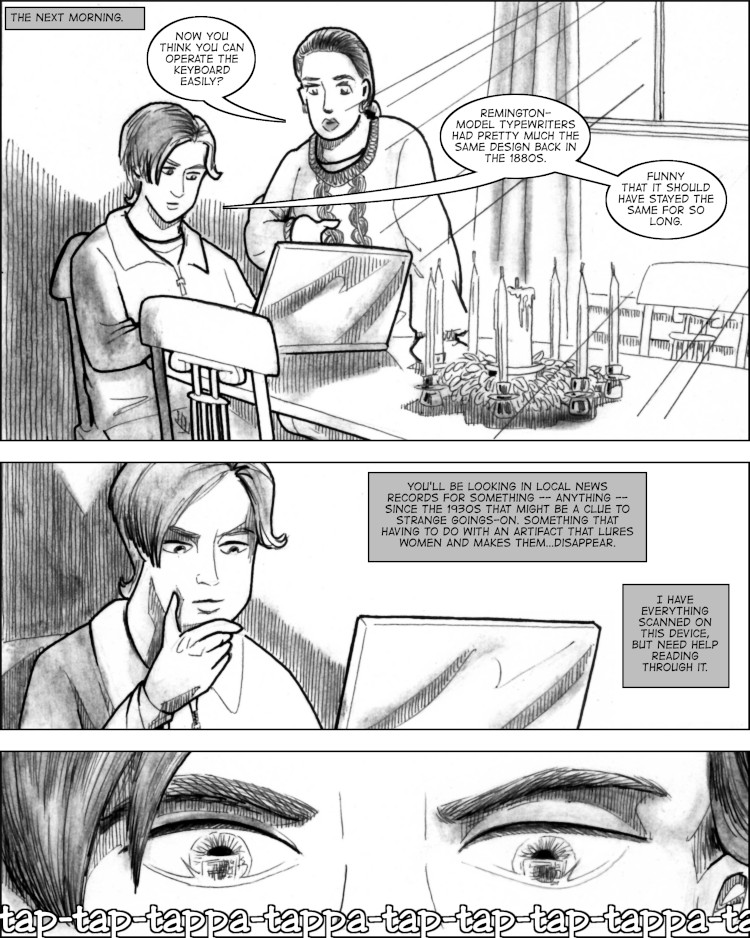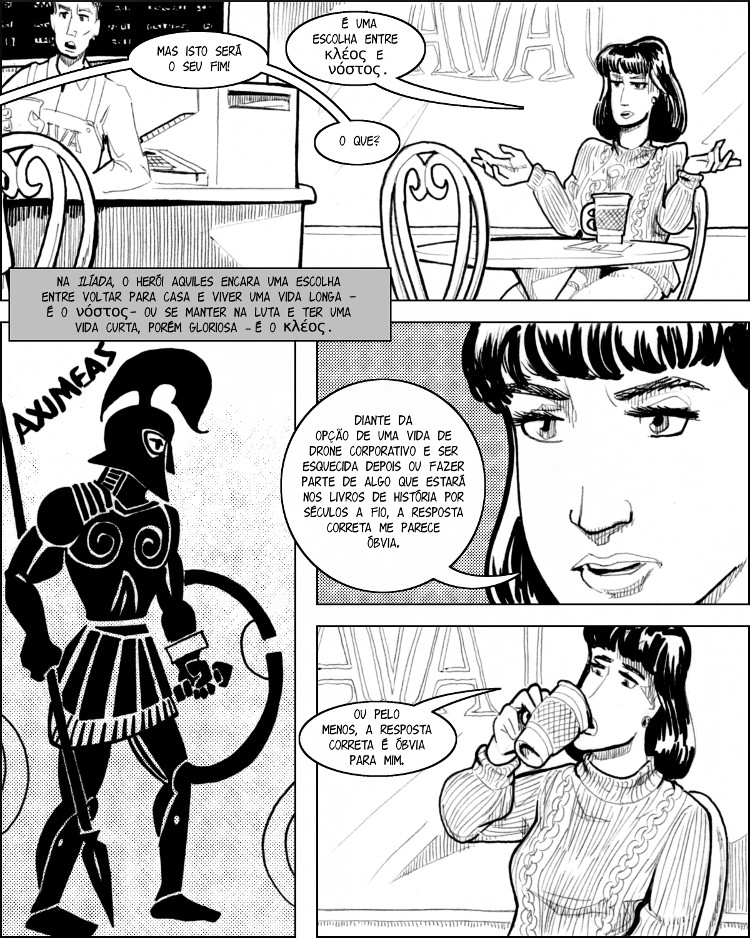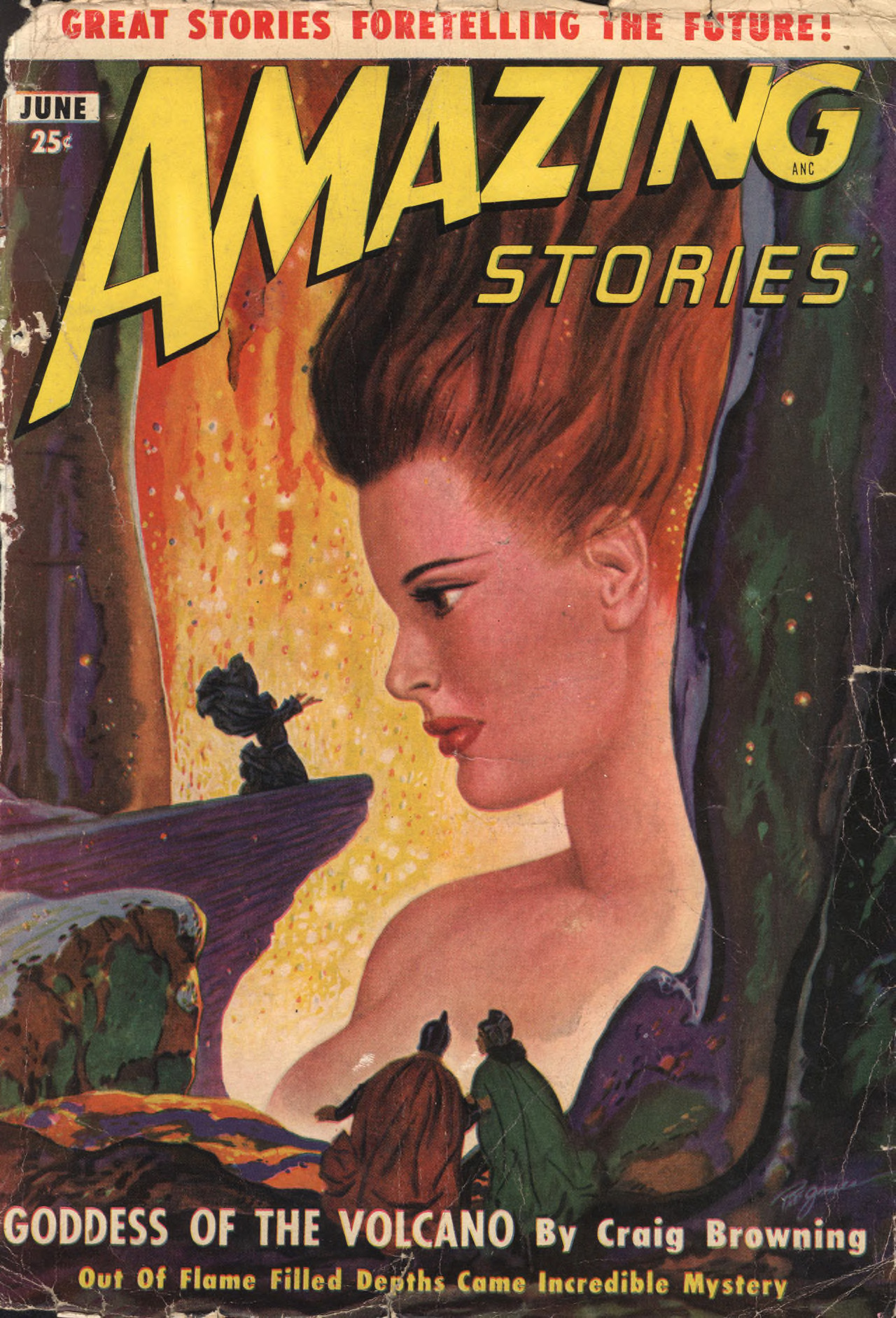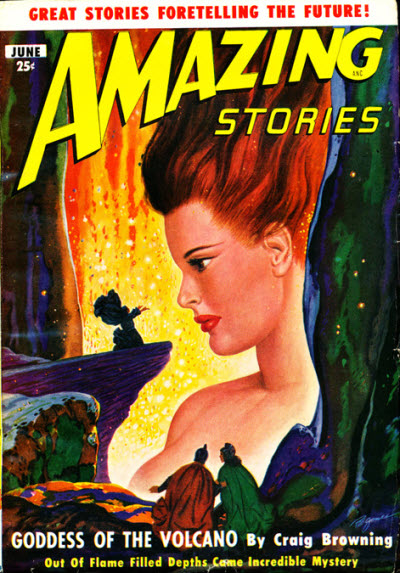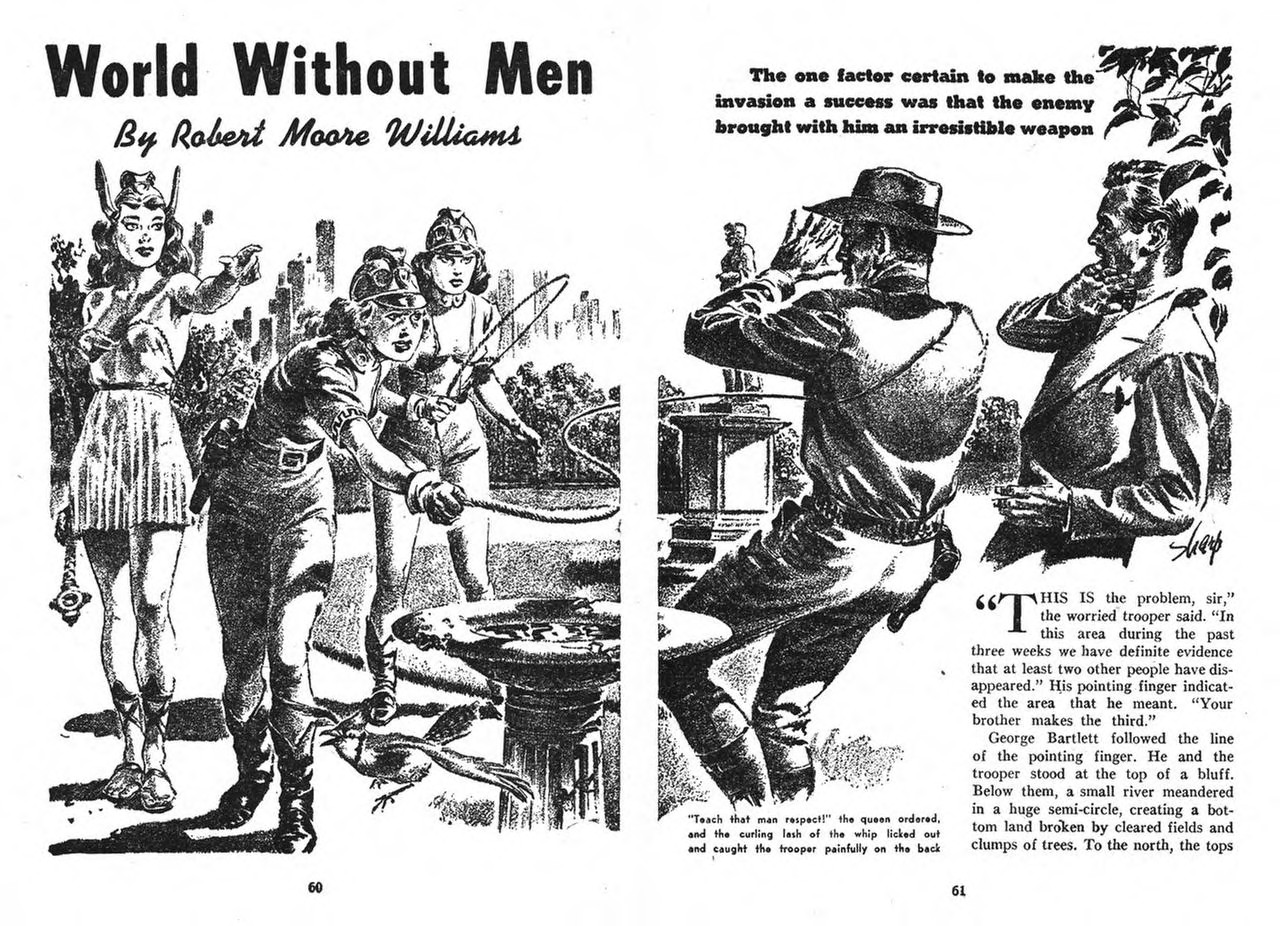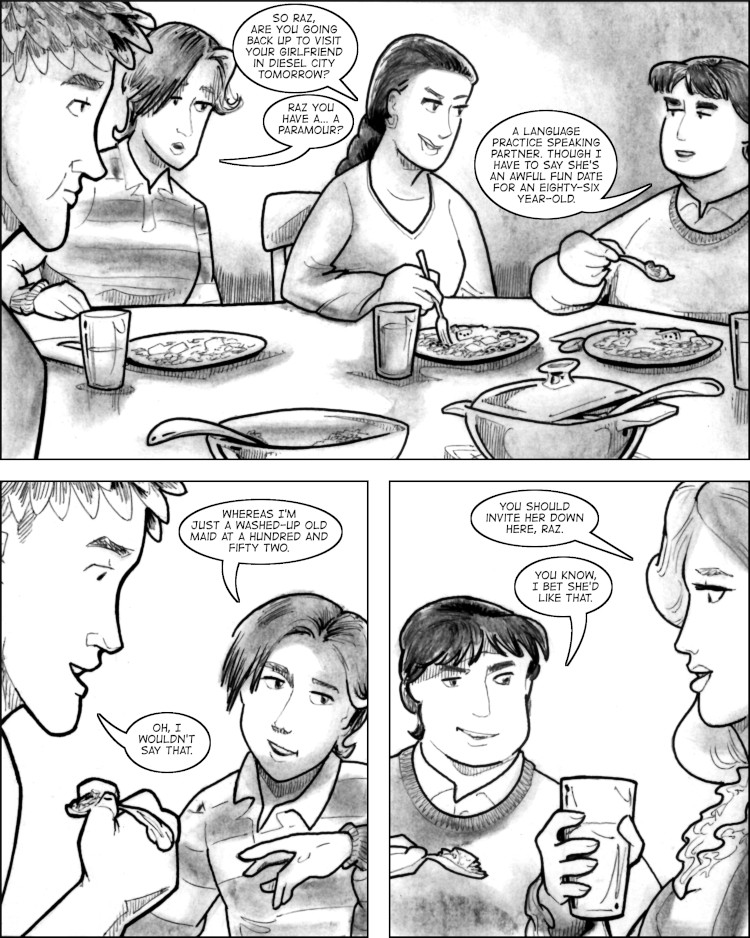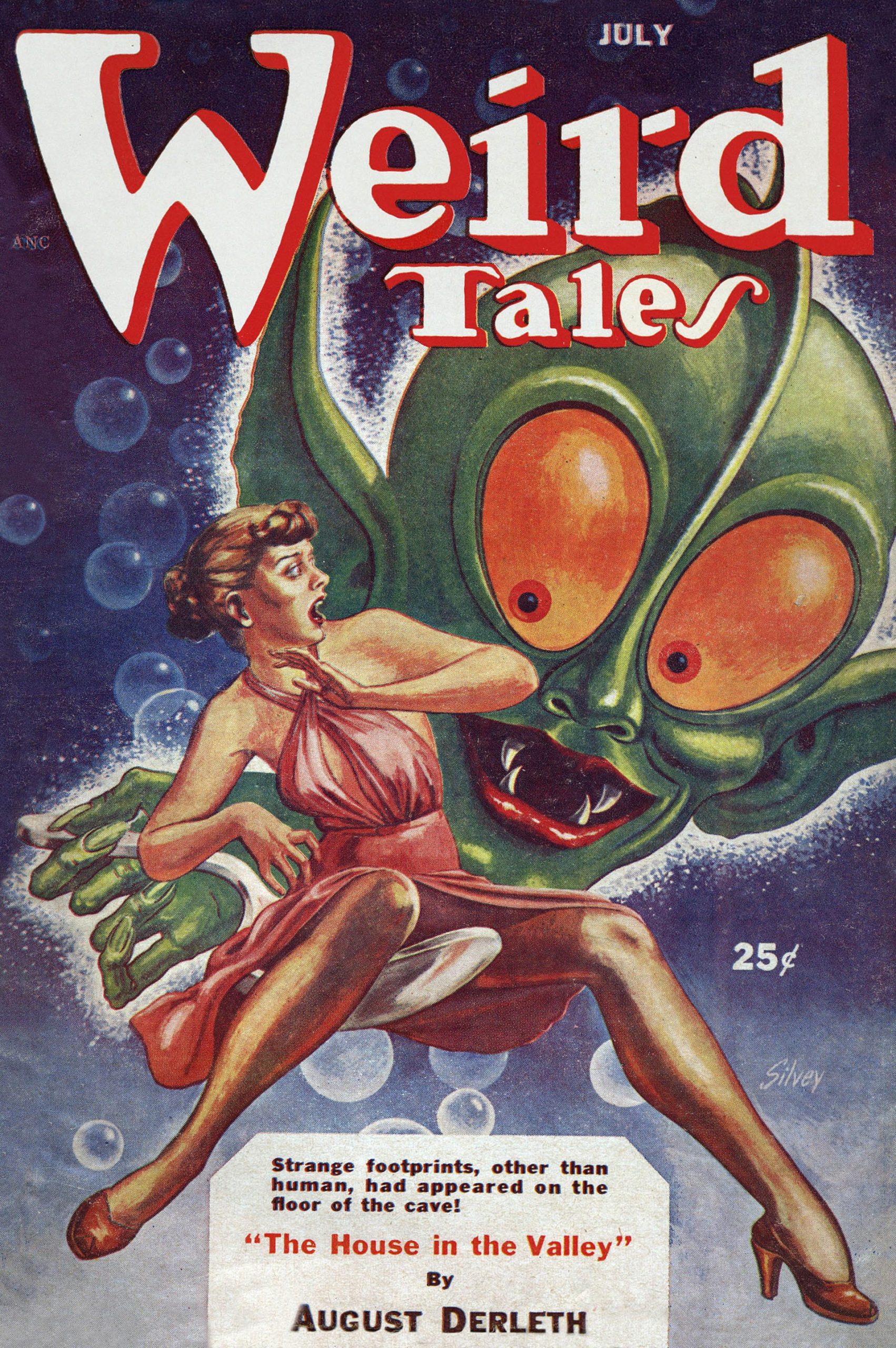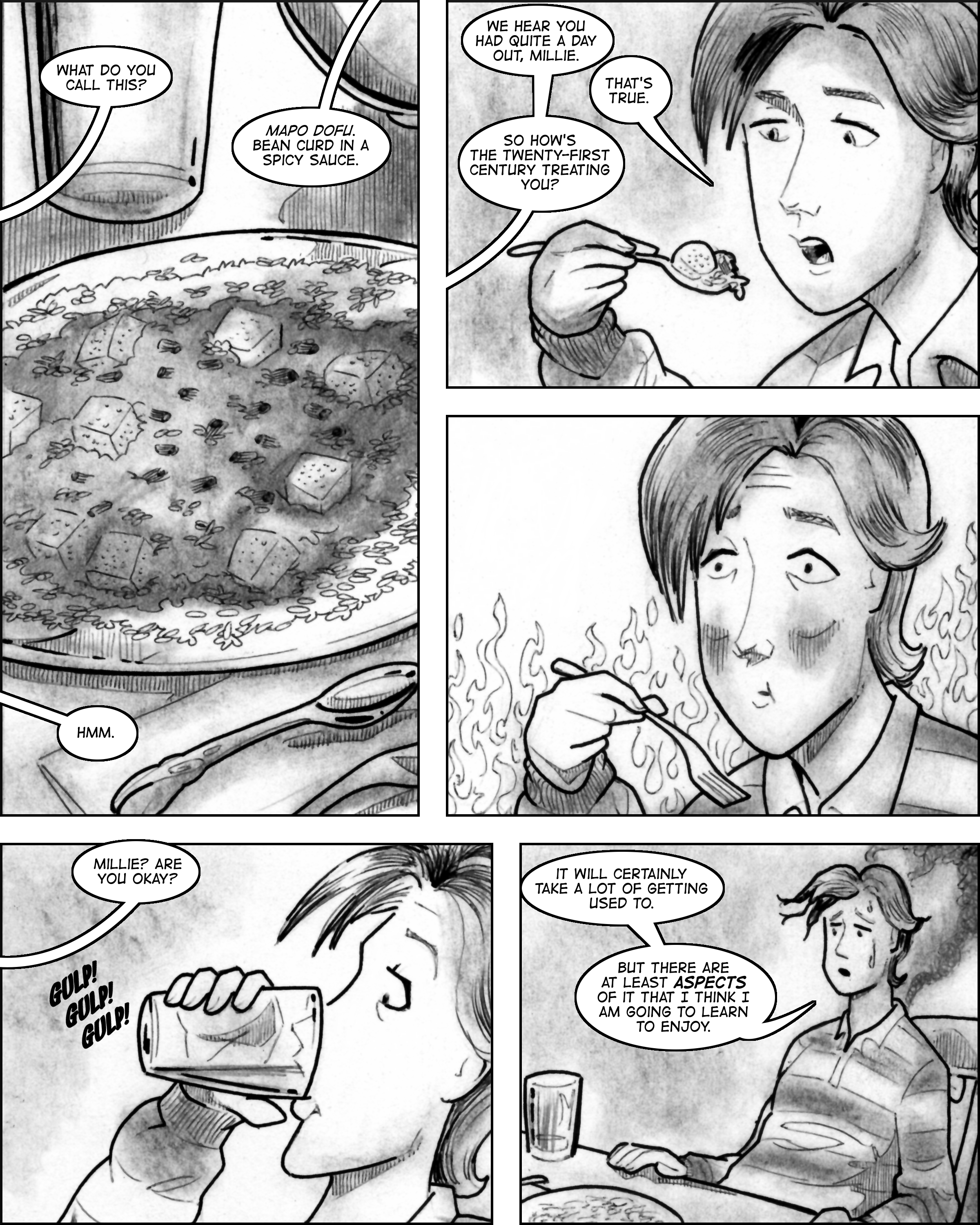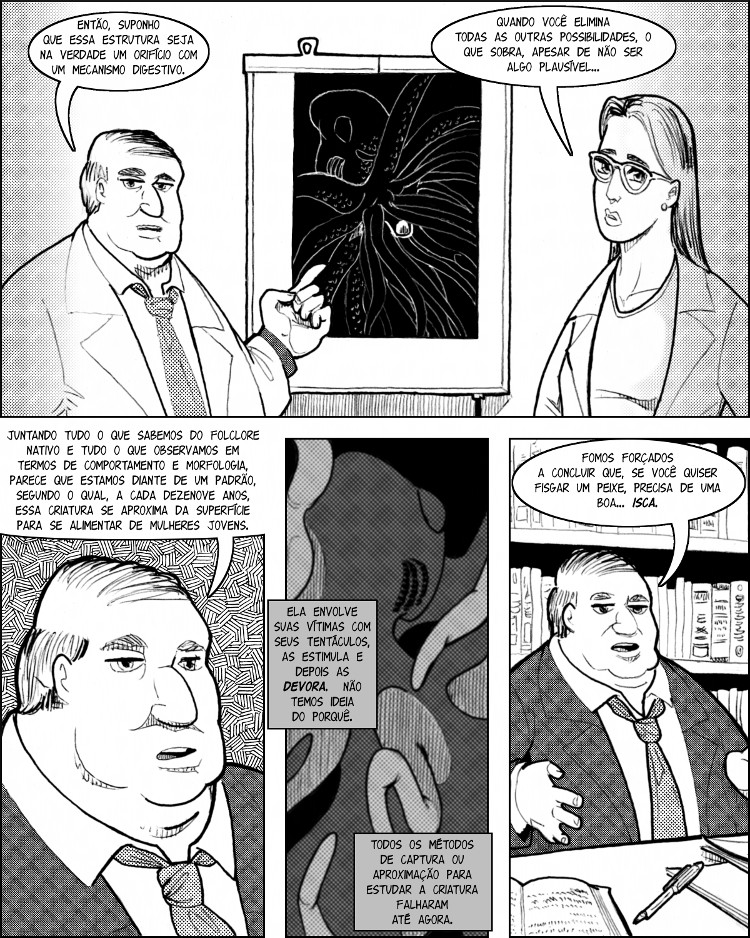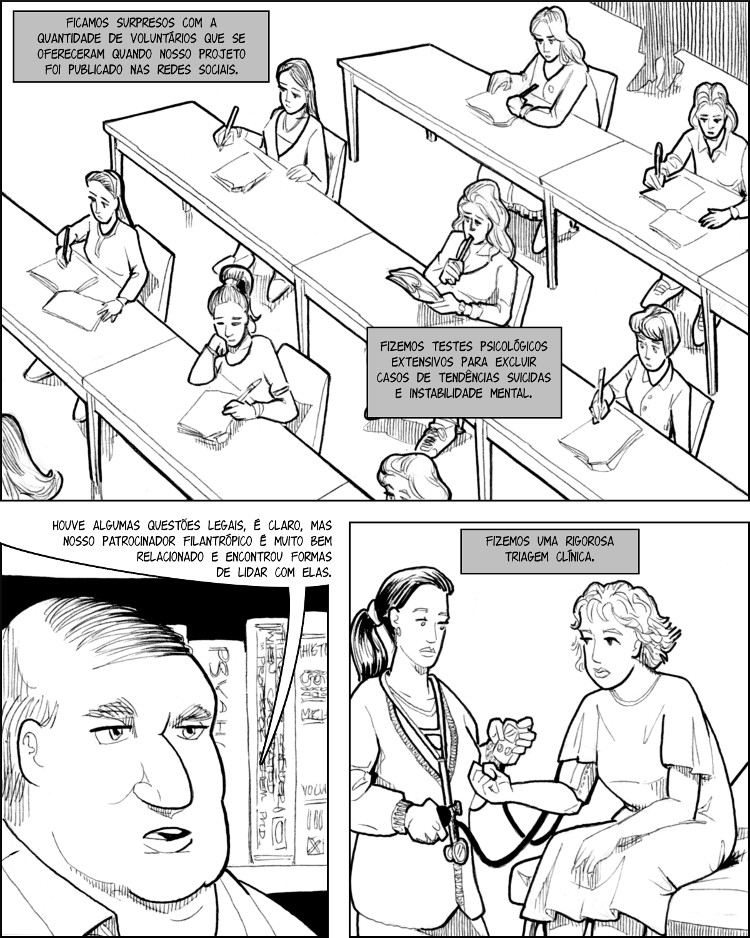

This work is licensed under a Creative Commons Attribution-NonCommercial-ShareAlike 4.0 International License.
PAGE 30 (Three panels)
Panel 1: Probably the largest panel across the top of the page. An institutional-looking room full of young women sitting at desks, filling out forms with pencils.
CAPTION – TURPENTINE NARRATING (1): We were surprised at the number of volunteers we got when word of our project got out on social networks.
Translation (1): Ficamos surpresos com a quantidade de voluntários que se ofereceram quando nosso projeto foi publicado nas redes sociais.
CAPTION – TURPENTINE NARRATING (2): We did extensive psychological testing to root out cases of suicidality and mental instability.
Translation (2): Fizemos testes psicológicos extensivos para excluir casos de tendências suicidas e instabilidade mental.
Panel 2: Turpentine in his office, being interviewed.
Turpentine (3): There were some legal issues, of course, but our philanthropic sponsor is well connected and found ways to deal with them.
Translation (3): Houve algumas questões legais, é claro, mas nosso patrocinador filantrópico é muito bem relacionado e encontrou formas de lidar com elas.
Panel 3: A young woman wearing a hospital gown, sitting on an examination table and having her blood pressure checked by a nurse.
CAPTION – TURPENTINE NARRATING (4): We did rigorous medical screening.
Translation (4): Fizemos uma rigorosa triagem clínica.
![]()
![]() A Isca (Português/Versão em página longa)
A Isca (Português/Versão em página longa)
A Isca (Português/Versão em carrossel)


